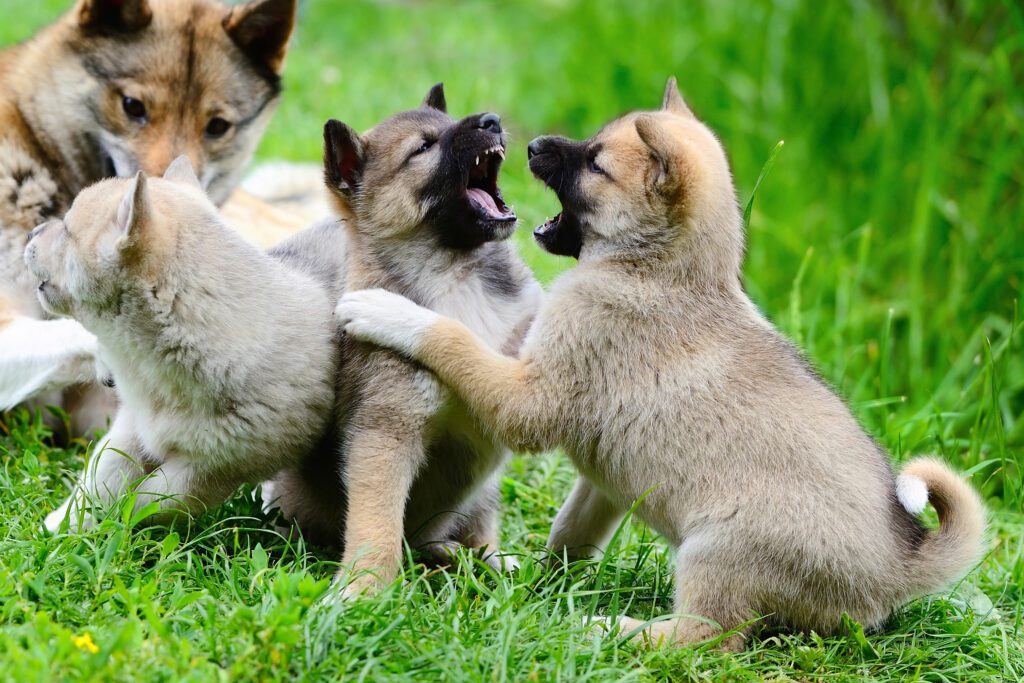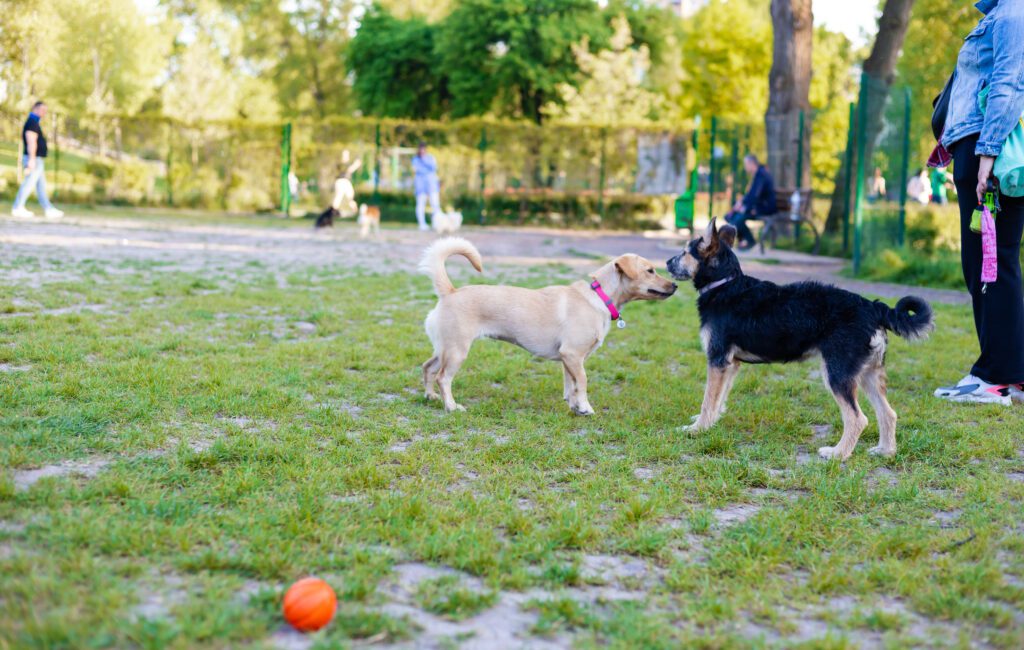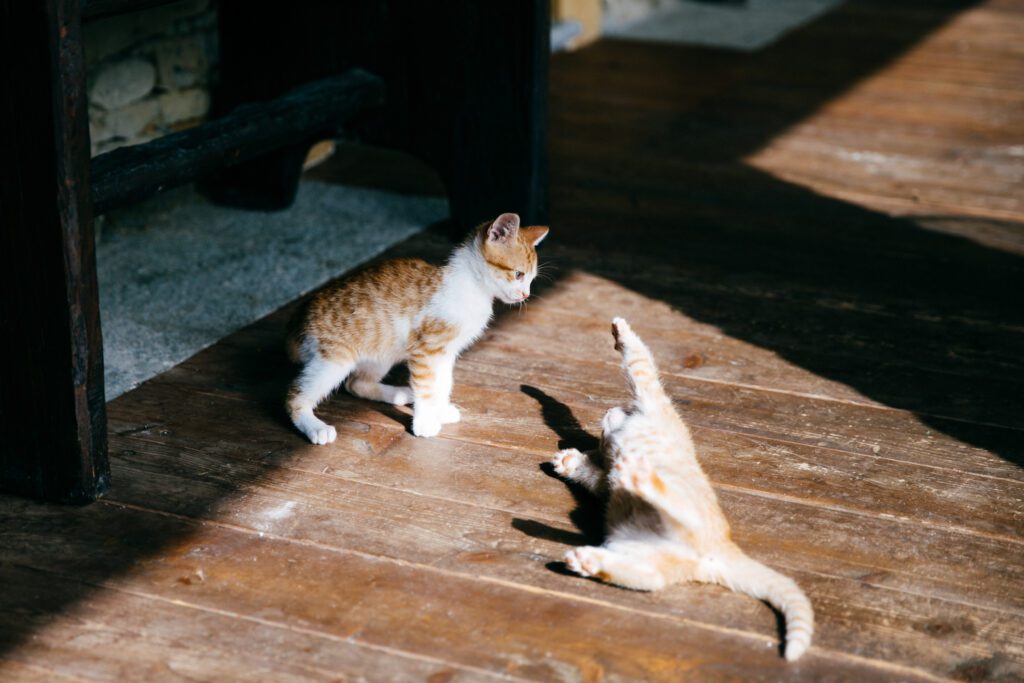Joy, laughter, and love are what bringing a new kitten or puppy into your home feels like. Part of the adventure is ensuring that your puppy or kitten is socialised correctly so they live a happy, well-adjusted life. In this blog, we will help you understand how to socialise your kitten or puppy, by following our tips. The strategies listed in this post will ensure your new family member grows up to be a confident, friendly, and well-behaved companion.
What is Socialisation?
Socialisation is the cornerstone of responsible pet ownership. It’s the process through which your young puppy or kitten learns to navigate the world around them, adapt to new experiences, and develop the skills they need to interact positively with people, animals, and their environment. This critical phase in their development plays a significant role in shaping their behaviour and temperament for the rest of their lives. Socialising with your new family member will reduce fear and anxiety, aggressive behaviour, enhance their learning, and promote confidence.

When to Start Socialising
The most important period for socialisation in puppies and kittens is typically between 3 and 14 weeks of age. During this time, their brains are highly receptive to new experiences, and they are less likely to form lasting negative associations. However, it’s important to continue socialisation efforts throughout their lives to maintain and build on the foundation established during this early phase.
Tips for Socialising Your Puppy
Interactions with Different People
Introduce your puppy to as many people as possible, including children and adults of all ages. This positive experience at an early stage will allow your puppy to be accepting of all types of individuals so that they don’t feel threatened or uncomfortable around them.
Exposure to their Own Kind
While introducing your puppy to humans is a great way to socialise your new family member, puppies also need exposure to other dogs as well. A great way to introduce your puppy to other dogs is by arranging playdates with different well-behaved dogs. Playdates are an excellent way for your puppy to learn to behave and play with other dog
Exploring New Environments
Allowing your puppy to experience environments like parks, cities, different homes, and areas will allow them to adapt to various surroundings without feeling anxious. The more they experience this kind of exposure, the more confident they will feel in different areas outside their home.
Handling and Grooming
Handle your puppy gently by touching their ears, paws, and tail. Give your puppy loving and gentle rubs on different parts of their body, allowing your pup to get used to physical touch. The more you handle them, the more comfortable they will be with physical contact with you and others. Engaging in physical contact with your puppy will also allow them to feel less anxious when being groomed or visiting a veterinarian.

Tips for socialising your kitten
Handling your Kitten
Get your kitten used to being held, petted, and having their paws and ears touched. This helps make vet visits and grooming less stressful for both you and your kitten. Gently rubbing and touching your kitten allows them to feel more comfortable with being touched by you and others.
Other Cats
If you have other cats, allow them to meet gradually under supervision.
Allow the cats to see each other through a cracked door or a baby gate. This visual introduction helps them become accustomed to each other’s presence without direct contact. Once the cats seem comfortable with the visual introduction, you can try a supervised face-to-face meeting in a controlled environment. Keep a close eye on their behaviour. If they seem tense or aggressive, separate them and try again later. Socialising with other cats helps your kitten develop social skills with their own kind.
Household Noises
Introduce your kitten to common household sounds like the vacuum cleaner, TV, and doorbell. Gradually increase the volume to prevent them from becoming skittish. Exposing your kitten to different noises will allow them to feel less tense and stressed when these different household items are being used.
Playtime
Engage the cats in interactive play sessions with toys like feather wands and laser pointers. Playtime helps them bond with you and is a great way for them to get some exercise. Use positive reinforcement techniques during playtime such as treats and praise, to reward calm and friendly interactions to encourage a positive association with good behaviour.

Common Mistakes to Avoid
- Isolating Your Pet: Keeping your puppy or kitten in isolation can lead to negative behaviour in your puppy and kitten. When puppies or kittens aren’t socialised, it encourages fearful and anxious behaviour.
- Forcing Interactions: Never force your pet into situations that make them uncomfortable. Exposing your kitten or puppy gradually to different experiences is a key component to positive socialisation.
Socialising your puppy and kitten is crucial in raising well-adjusted, happy pets. It helps them build positive associations with the world around them and ensures they can adapt to various situations.Remember that patience and consistency are vital to successful socialisation. The efforts invested in their early years will pay off with a lifetime of love and companionship. Following the tips and strategies mentioned in this blog, will give you and your pet a lifetime of joy, love, and companionship with your furry friends. So start early, be patient, and enjoy the journey of socialising your adorable pets.
